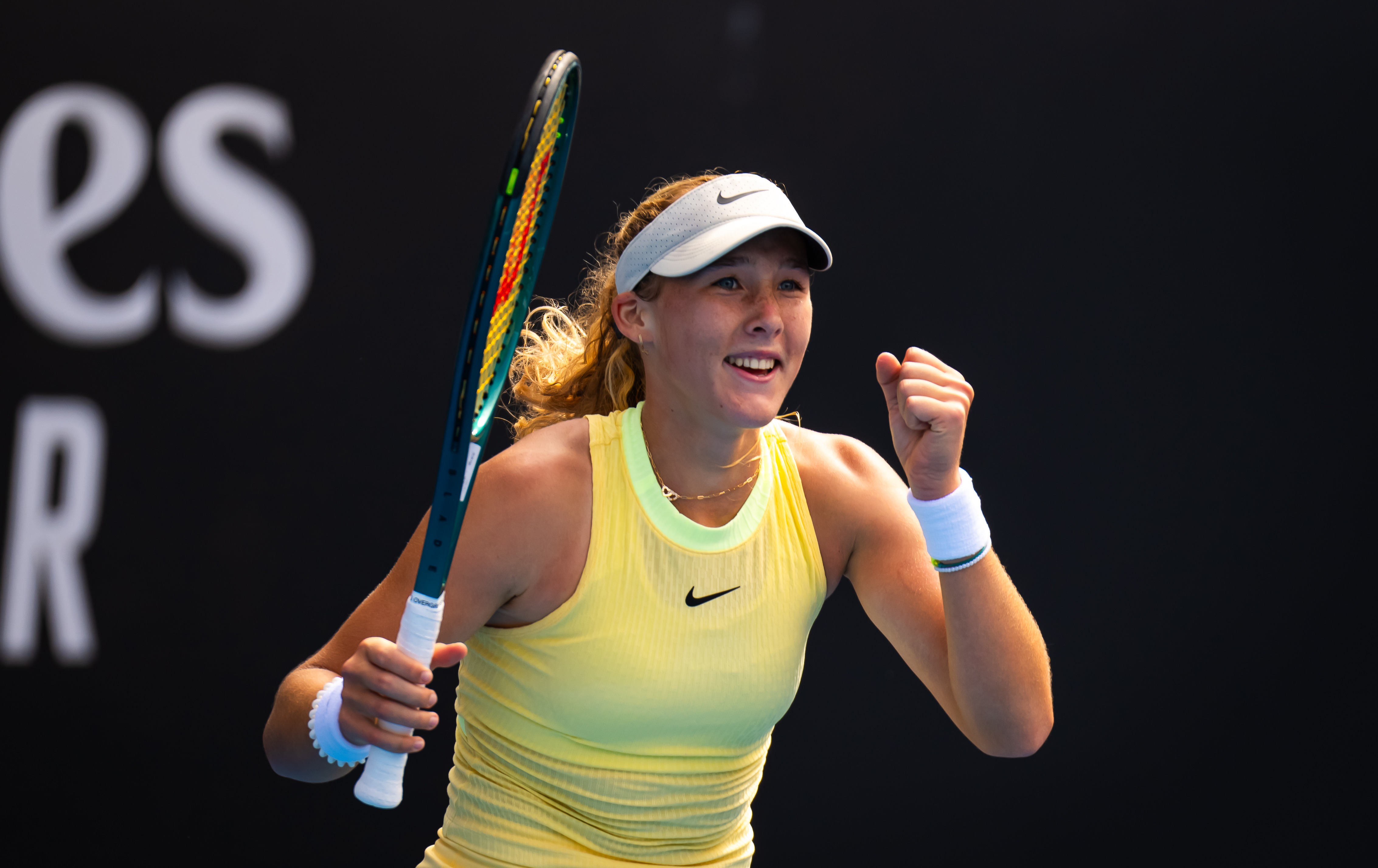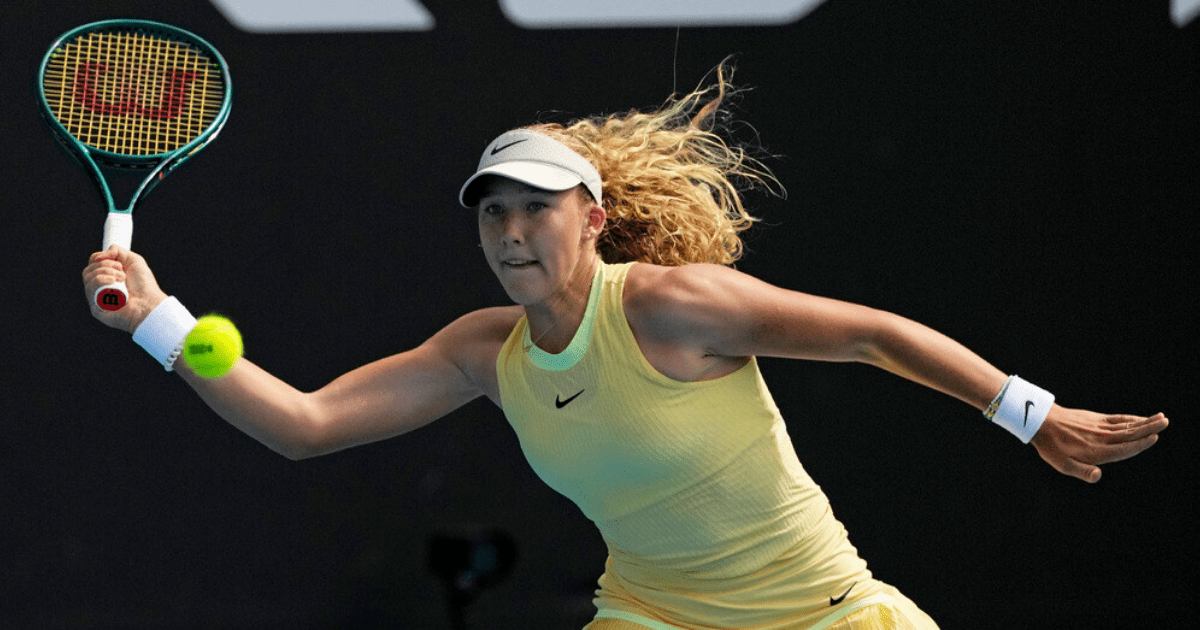Teenager stages incredible comeback
16-year-old tennis sensation Mirra Andreeva came back from 5-1 down in the deciding set to secure a tiebreak victory against Diane Parry at the Australian Open.
Murray takes to social media
Watching the match closely, former Wimbledon champion Andy Murray took to X, formerly known as Twitter, to criticize the commentator who questioned Andreeva's mental strength during the match.
Murray defends Andreeva's mental toughness
Disagreeing with the commentator's assessment, Murray argued that Andreeva's mental strength was the reason behind her impressive comeback.
Andreeva thrilled by Murray's support
Andreeva, a big fan of Murray, expressed her gratitude for his social media post and even joked about printing it out and framing it as a memento.

Teenager reflects on her mentality
Andreeva acknowledged that being tough on herself actually helped her during the match, as it motivated her to push harder and stay positive despite her usual negative mindset.
Andreeva's next opponent
Andreeva will face either Storm Hunter or Barbora Krejcikova in the fourth round of the Australian Open.
Frequently Asked Questions
How important is nutrition to becoming an elite tennis competitor?
Tennis players are not exempt from the importance of nutrition and diet. Appropriate dietary intake supports intensive training by providing the necessary energy, facilitating recovery, and reducing the risk of injuries. An elite player’s diet typically includes a balanced mix of carbohydrates, proteins, and fats, along with essential vitamins and minerals. Another important aspect is hydration, since maintaining a good fluid balance during play is essential to avoid fatigue and maintain focus.
What kind of fitness training is essential for tennis players
Tennis is physically demanding and requires a mixture of aerobic endurance, strength and power. Fitness training for tennis players often encompasses cardiovascular exercises to improve endurance, plyometric and explosive exercises for speed and power, weight training for strength, as well as agility drills to enhance footwork and on-court movement. Core stability exercises and balance training also play an essential role in building the muscular endurance and coordination necessary for managing the physical demands of the sport.
How can tennis players balance their training with schoolwork?
It is difficult for tennis players to balance their academic obligations with intense training schedules. Time management, prioritization skills and sometimes creative scheduling are required. Online schooling programs and flexible academic schedules can help young athletes manage their training and travelling schedules. Families, coaches and educational institutions can also play a vital role in helping athletes achieve their athletic goals without compromising their studies.
How important is mental and psychological training in tennis?
Tennis requires mental and psychological training as much as physical training. Players must learn stress management, how to maintain focus and how to deal with emotional highs and lowers during competition. Common techniques include visualization, goal setting, and mental rehearsals. Working with a sport psychologist can help players develop resilience, learn coping techniques for pressure situations and improve their mental performance to match their physical abilities on the court.
How important is it for you to compete at junior tournaments if you want a career as a professional tennis player?
Junior tournaments are a vital step on the road to a tennis professional career. These tournaments give young athletes the chance to compete against peers, gain valuable experience in matches, and learn how to deal with the mental demands of competitive play. These junior tournaments serve as a springboard to higher-level events and can impact a young athlete’s ranking and visibility among coaches and sponsors.
Statistics
- Statistical trends indicate that top tennis players usually have at least 5 people in their support team, including coaches, fitness trainers, and physiotherapists.
- Studies show that superior agility and speed among tennis players can reduce their reaction time by up to 30%, which is crucial during high-level matches.
- On average, it’s estimated that only 1 in 5000 high-level junior tennis players will develop into internationally ranked professionals.
- Approximately 70% of a professional tennis player’s training time is devoted to developing technique and on-court strategies.
- Top tennis players typically train for 4 to 6 hours per day, divided between on-court practice and fitness training.
External Links
wilsontennis.com
tenniscompanion.org
tennisfitness.com
atptour.com
myprocoach.net
How To
How to Create a Pre-Match Warm-up Routine for Tennis
Tennis warm-ups should prepare you for competition by preparing your body and mind. Begin by warming up your body and heart with light cardio exercises such as jogging. Switch to dynamic stretches that focus on your legs and arms to increase flexibility without reducing strength. Include specific movements, such as shadow swings using your racket, to practice groundstrokes and serves. Practice agility exercises to fine-tune your footwork. End with short points, or practice serving to sharpen up your timing. Warming up properly can enhance your performance and decrease the risk of injury.

